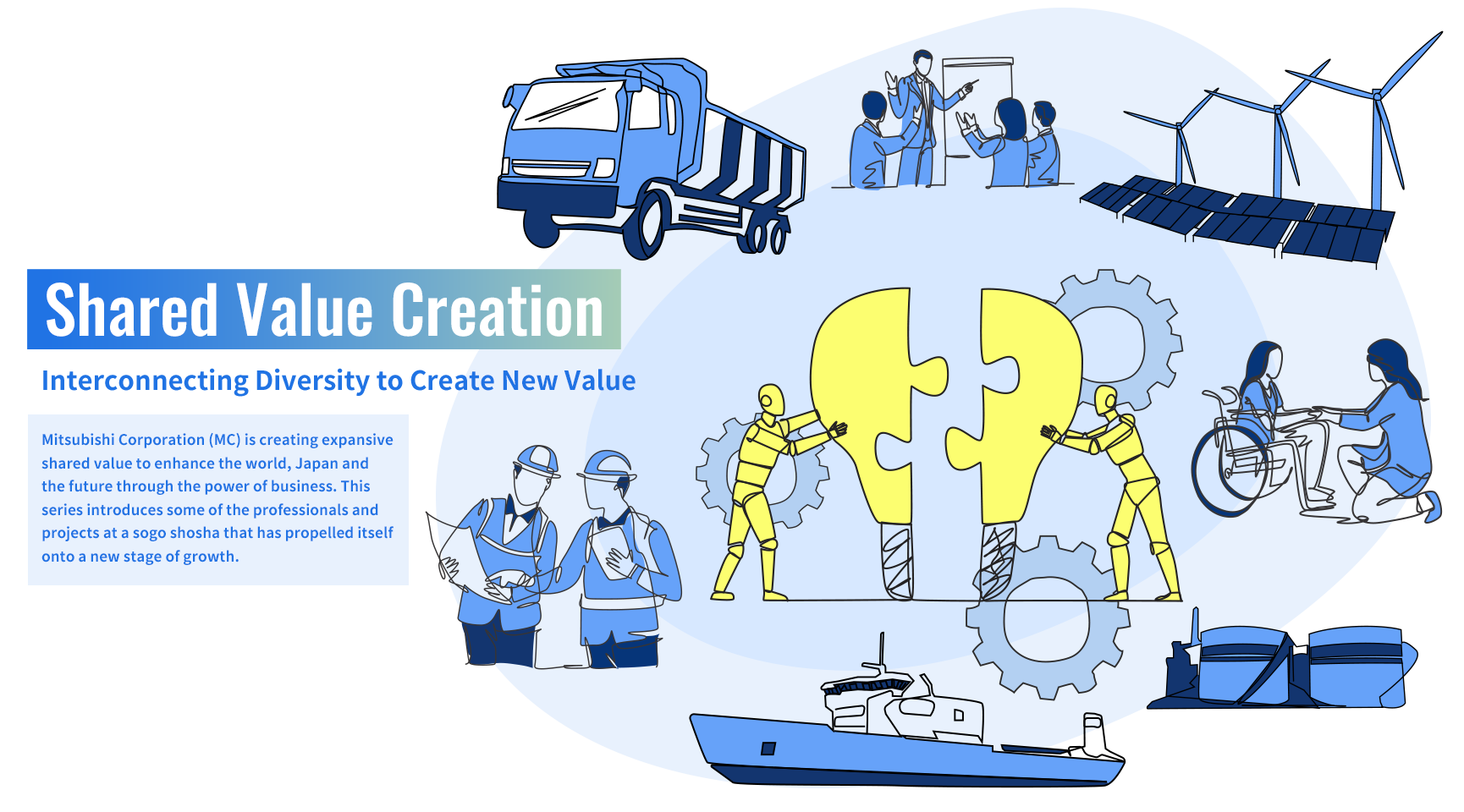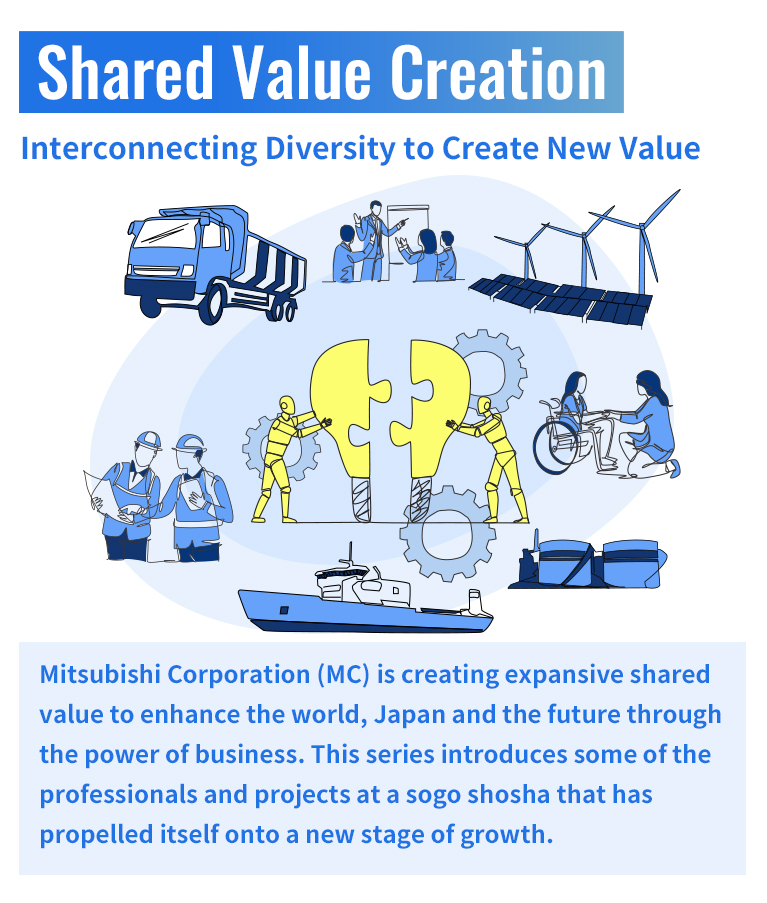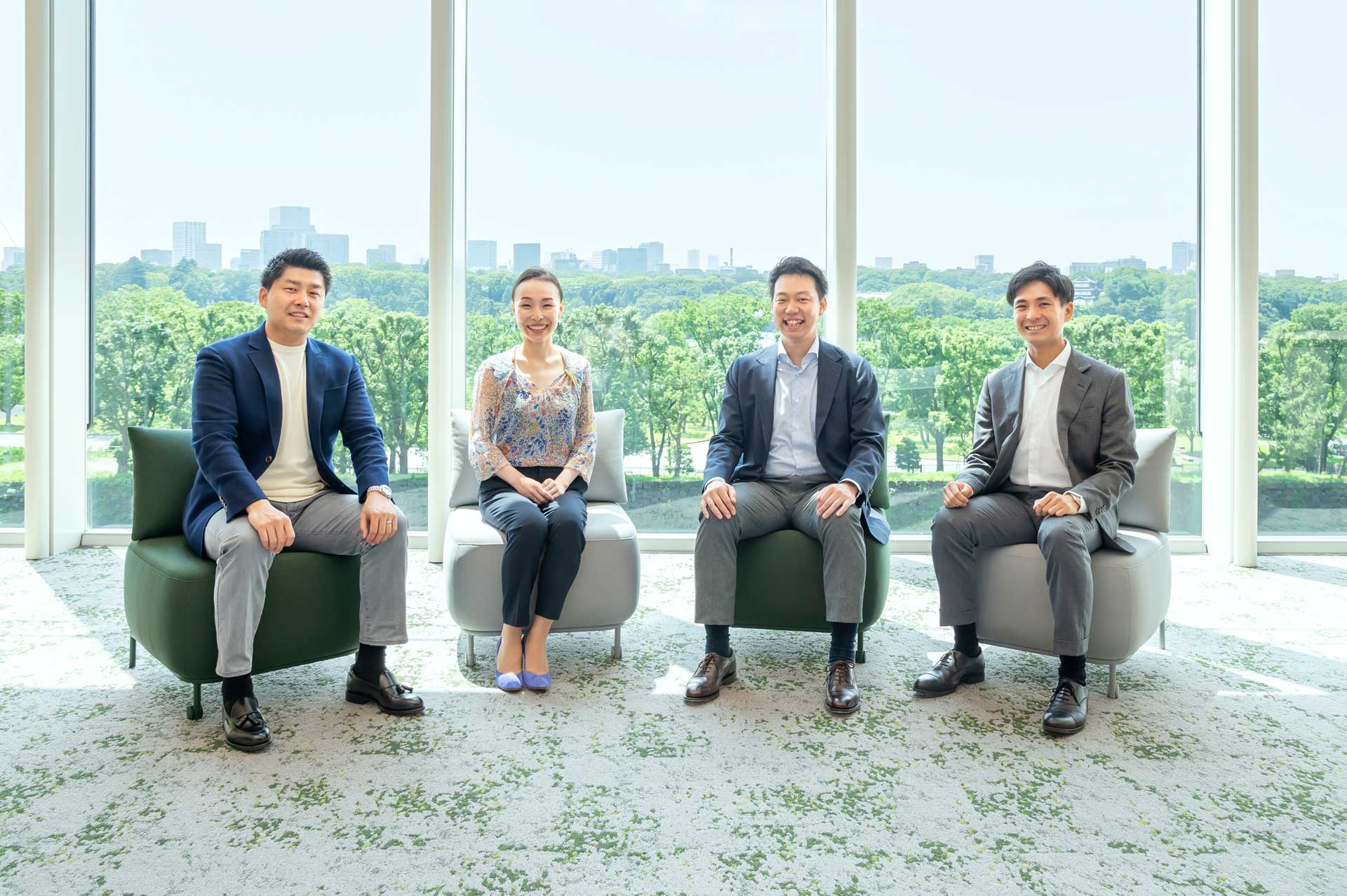Confusion and upheaval in the international community, cutting-edge technological innovations, the reforging of global supply chains and other developments are driving paradigm shifts in a variety of industries. Recognizing these trends, MC reorganized its operations into eight new business groups in fiscal year 2024, its aim being to leverage the MC Group's collective capabilities to develop solutions that will help address many of the challenges facing modern society. In this series, Asahi Weekly Digital will examine the current circumstances and future aspirations of each of these new business groups, all of which are off to a strong start under MC's new organizational framework.
The focus of our first two articles will be the Urban Development & Infrastructure Group, which is tackling challenges and leading progress in a wide range of social infrastructure domains, work that includes the development and administration of real-estate projects and cities, to shipping, aerospace and industrial-machinery operations. But what kinds of businesses is the group engaged in, and what are the driving forces that motivate and inspire its people? Asahi Weekly Digital GLOBE+ Editor-in-Chief Kazuhiro Sekine sat down with some of those professionals to find out.
-
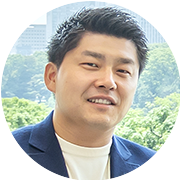
Kazuma Murakami
Infrastructure, Ship & Aerospace Division, Defense & Aerospace Department, Aerospace Business Team
-
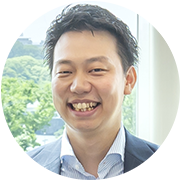
Yusuke Muroya
Industrial Machinery Division, Construction Solutions Department
※Currently on secondment to Nikken Corporation -
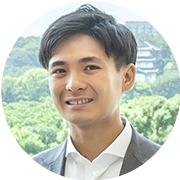
Yuki Ono
Domestic Urban Development & Digital Infrastructure Division, Domestic Urban Development Department
-

Nozomi Kumada
Global Urban Development Division, Asia Urban Development Department
Transforming the Kamakura-Fujisawa Area into a Health Innovation Hub
—— Today, I'm joined by a representative from each of the four divisions comprising MC's Urban Development & Infrastructure Group. I'd like to start by asking Ms. Ono of the Domestic Urban Development & Digital Infrastructure Division to tell us a little bit about her work.
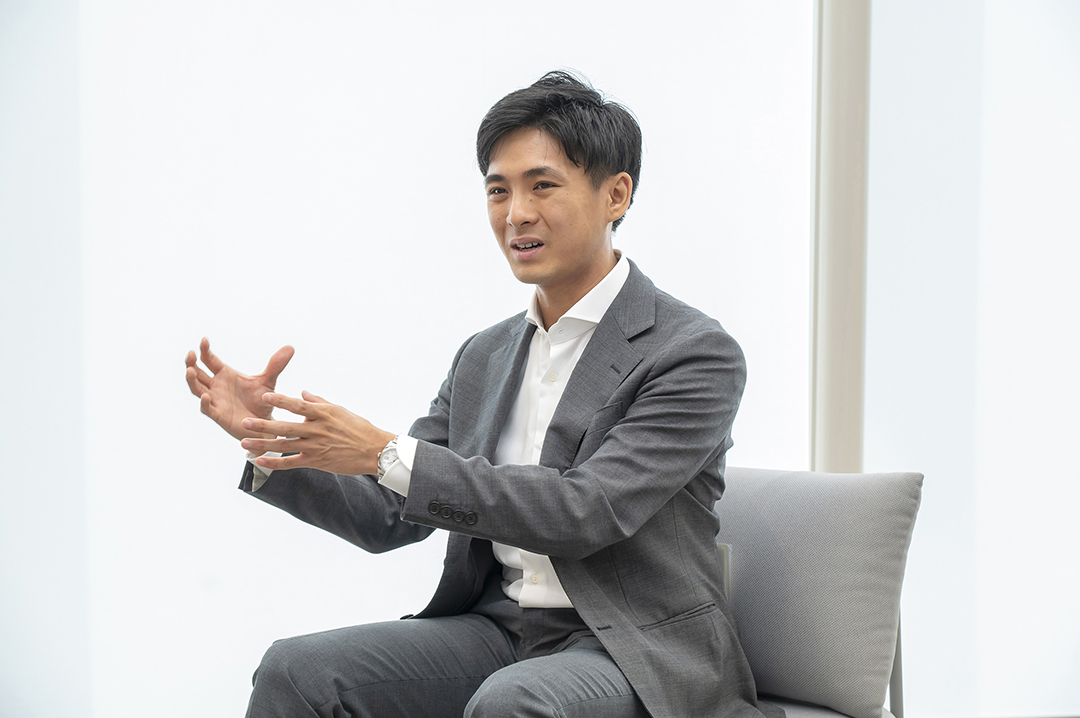
Ono
I'm working on a large-scale redevelopment in the Kamakura-Fujisawa area of Japan's Kanagawa Prefecture. The project's main focus is "health innovation."
This area is home to Shonan Health Innovation Park (Shonan iPark) and Shonan Kamakura General Hospital (Shonan General). The former is one of Japan's largest research centers for the development and production of pharmaceuticals, and the latter is one of the country's leading medical institutions, facilitating more than 22,000 emergency transports per year.* Five public and private parties that include the prefectural and municipal governments of Kanagawa, Kamakura and Fujisawa are aiming to develop the area into a center for cutting-edge health innovation, and here at MC, we've been proposing a number of ideas to help them achieve that aim.
* Fiscal year 2022
Our objective in this urban-development project is to build a city-wide ecosystem* for drug discovery and production. The core of this ecosystem will be Shonan iPark and Shonan General, but its cohabitants will also include
businesses, universities, research institutions, startups, and venture capitalists who are all engaged in developing and manufacturing pharmaceuticals.
* The term "ecosystem" typically refers to a natural environment in which plants, animals and other biological organisms interact with one another and support life. In business, the term refers to an environment cohabitated by various businesses that leverage their respective strengths to support mutual growth and development.
—— A redevelopment project that's aiming to build an industrial cluster in drug discovery and production sounds like a fascinating endeavor. I'm guessing that this will also be beneficial to the local communities of both Kamakura and Fujisawa cities.
Ono
Absolutely. Residents of both cities, as well as those who work in them and visit them, will all benefit from the advanced technologies that this ecosystem promises to deliver, and our goal is to ensure that as they do so, they remain healthy, safe and secure.
Pilot projects have already been launched in a number of fields. For example, one demonstration focused on daily transportation to and from healthcare facilities. It involved self-driving vehicles that use digital technologies to check patients’ vital signs (temperature, blood pressure, etc.) and take their medical histories while on route.
Another set of trials covered special-care services for expectant and nursing mothers. Wearable devices* were distributed to mothers being seen at Shonan General, and information on exercise amounts, sleep quality and other lifelog data that was collected from those devices was monitored by the hospital staff. An app was then used to help provide the mothers with health-related advice during both pre- and post-natal consultations and enhance the quality of care they received at home.
*Compact digital devices that people can attach to their wrists and other body parts.
By providing wearable devices to local residents as well, we've been able to use their daily life logs to offer them health-improvement programs related to exercise, sleep and nutrition. This has helped to make them more health conscious in their day-to-day lives, and may also prove beneficial down the road, as those data could come in useful should they develop any diseases later in life.
I'm not saying that as long as people live in this region, they're going to get healthier (laughs), but I do think developing a city that's capable of realizing these kinds of health innovations is a goal worth pursuing.
Capitalizing on Vietnam's Housing Situation
Delivering Ideal Homes to Local Citizens
—— The Global Urban Development Division is also active in the real-estate sector, and I understand its focus is on developing and managing both properties and communities overseas, mainly in other parts of Asia and North America. Can you tell us more about what it does, Mr. Kumada?

Kumada Of course. My role in the division is to oversee projects in Vietnam, a country that is enjoying robust economic growth. For the last five years, we've been engaged in major real-estate developments in Hanoi and Ho Chi Minh, the former being Vietnam's capital and the latter being its commercial hub. I have two main jobs. The first is developing upscale condominiums to meet growing demand, as a conspicuous lack of quality housing in Vietnam runs in stark contrast to the country's strong economic development and population growth. My second job involves digital transformations (DX) in the real-estate sector.
—— How does DX apply to real estate?
Kumada Basically it's services that address Vietnam's concerns about interior design. If we buy a home in Japan, we can live in it once we've furnished it, but in most cases in Vietnam, even the kitchens, bathrooms, and other fittings have yet to be installed when people buy their homes. Normally, it's the home buyers who are responsible for arranging all of that work after they've taken possession. In other words, if you buy a new home in Vietnam, you then have to find a local contractor, budget for the additional work and oversee the property's completion yourself. You also need to meet with the local contractor and explain how you want everything done. So essentially, you have to be your own project manager, as you're responsible for the progress, quality and cost of the work from that point forward. I think you'd agree that this is a huge amount of work for the average person, and when all that hard work is finally done, you're not guaranteed to end up with the perfect home that you envisioned at the start. If all goes well, you'll get the home you wanted, but the fact is that in an awful lot of cases, home buyers in Vietnam are left with something that's either completely different, took far longer than promised to complete, or even over budget. It's sad to know that people are finally able to move into their own homes only to discover that those homes are a big disappointment. One DX project that I'm working on was conceived to address this problem. Our idea was to select and introduce contractors that can guarantee quality ahead of time, template the interior designs and make them available online. The customers can sort through those and customize things to meet their preferences. We conducted some trials which gradually built relations between local developers, sales agents and other players, and eventually we got an order from a major Vietnamese property developer. We plan on steadily expanding the scope of our services and hope to roll them out nationwide within the next few years. I'm excited about what lies ahead for this business, and I'm looking forward to helping as many Vietnamese people as possible live happily and comfortably in their dream homes.

—— Listening to both of you has made me realize that real-estate businesses aren't just about erecting new buildings. It's surprising to learn just how much else is involved, including the actual building of cities and development of services for home owners.
Kumada That's right. Obviously we're also engaged on the construction side, but the biggest difference between MC and property developers is that our focus is not just on the buildings themselves. We develop the platforms, that is to say the buildings and the cities, but we then leverage our company's network to provide the products and services that will be hosted by those platforms, covering all possible solutions from energy and mobility to digital. Our operations have the potential to enhance the overall value of properties and communities alike. Ono Since day one, the urban development and city management work that's underway in the Kamakura-Fujisawa area has been a joint effort between all those involved. All the parties were engaged in the original city concept and development plan, and they have been working alongside one another every step of the way since then. Involving so many different players can complicate investigations, but by developing and managing the project in such a broad context, I think we're better equipped to find solutions to regional challenges and structural problems in industry. Furthermore, this kind of approach will sustainably enhance the value of these municipalities. It's very enjoyable and rewarding work.
The Analog Construction Industry
DX Breathing New Life into Rental Businesses
—— The scope of operations covered by MC's Industrial Machinery Division is quite broad. It extends from industrial infrastructure businesses like power generation, oil and gas, to airports, railway systems and other social infrastructure projects, and further still to rental operations in heavy agricultural machinery, construction machinery and other industrial equipment. Today though, I'd like to focus on the work being done by the Construction Solutions Department. Can you tell us about that, Mr. Muroya?
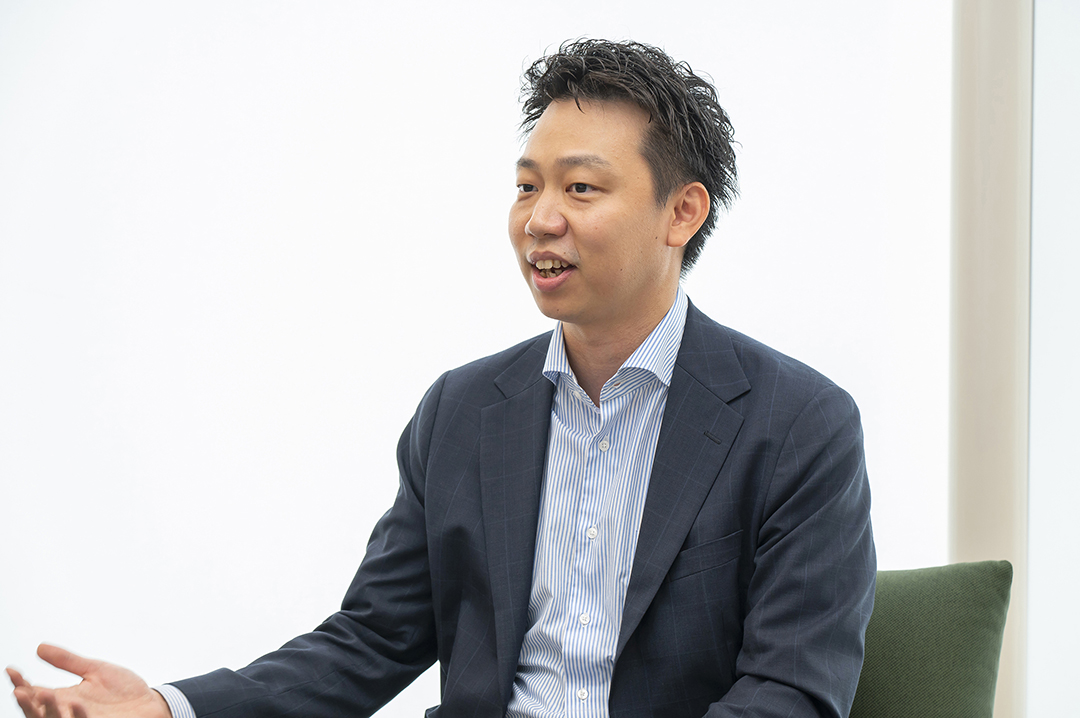
Muroya Sure. I'm a member of that department, but right now I'm on secondment at Nikken Corporation (Nikken), which is an MC Group company. Nikken rents equipment and machinery, mostly for use in civil engineering and construction. The company has roughly 250 offices across Japan. Most people probably don't know this, but almost all of the equipment used on construction sites is rented. Obviously this includes heavy machinery like bulldozers and dump trucks, but it also includes the lighting systems used during nighttime construction work and many of the smaller supplies like pylons, safety rope, and so on. Nikken's rentals span some 4,700 kinds of civil engineering and construction products, and its entire catalogue comprises roughly 1.2 million items. The company's pledge is to provide general contractors and construction companies with exactly what and how much they need, exactly when they need it.
—— I understand that the company's operations are being digitalized to raise productivity. Tell us about that.
Muroya I always thought of construction as a traditional industry, but when I was exposed to how things operate at Nikken, I was surprised by what I saw. Up until a few years ago, orders for construction equipment rentals were always placed by phone or fax, but that analog world was rife with inefficiencies. Smudged and unreadable faxes, unanswered calls during busy periods, customers not having the manpower to place late-night orders, poor management of rented equipment, duplicate orders and other problems were an everyday occurrence. In 2021, Nikken addressed those inefficiencies by launching its online rental service. Customers could now place orders for deliveries and returns 24 hours a day with their smartphones, tablets or computers, and because the type and quantity of equipment being used at each site could be confirmed and shared in real time, management of the rentals became a much smoother process. Now the rental equipment is even tagged with GPS sensors, so we can know instantly the precise locations where items are being used, even on the largest construction sites. Nikken made even more progress in 2024, when it set up its Data Driven Project Office, which takes advantage of big data to streamline the company's decision making. For example, after receiving a customer's order, the company can use AI to determine the most efficient route to collect and redistribute the products the customer wants, which also helps to eliminate wasted time, fuel and work on the logistics side. If demand forecasts can be used to optimize the distribution and purchase of rentals, Nikken can maximize the turnover of its construction equipment and minimize missed opportunities. The company is also keen to develop new business models.
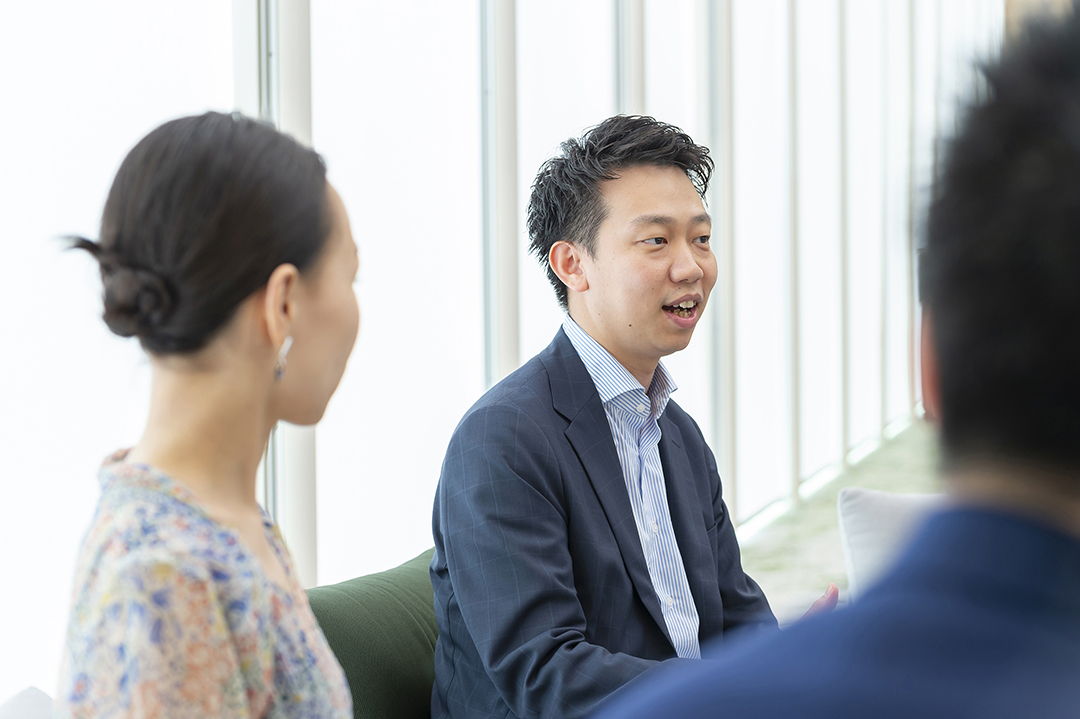
—— As a secondee, do you find it difficult to contribute to these kinds of corporate reforms?
Muroya Not at all. I've been at Nikken for four years now, and I know that success in building trust with my colleagues there will have nothing to do with where I came from. It will depend entirely on how serious I am about bettering the construction and construction-equipment rental industries, and how much I truly care about the projects I'm working on. Obviously, there's going to be some resistance to overhauling work practices that those on the front lines have grown accustomed to and are happy with, as was the case when we introduced the online rental service. For that reason, it's even more important that I thoroughly consult with everyone and get them to appreciate how significant change will be for the future. If necessary, those talks may not even have anything to do with Nikken or MC. If I can demonstrate that attitude and take that action, I'm confident that good relationships will be a natural consequence.
Spotlight on Space
Why Is it Important that MC Get Involved?
—— The Infrastructure, Ship & Aerospace Division has a team dedicated to space related business. It's surprising that MC has actually branched out into the cosmos!
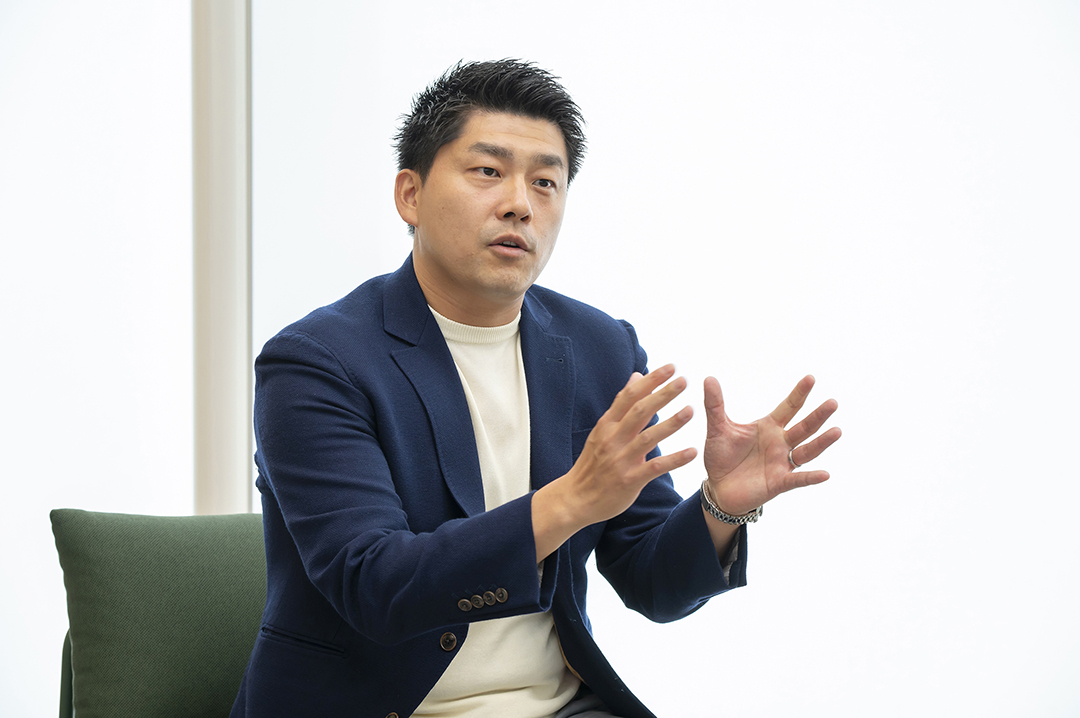
Murakami I agree that it's a bit hard to picture how the work of a sogo shosha could relate to outer space, so first we need to understand the tremendous innovations that are underway in that sector nowadays. In addition to revolutionary advances in its technology, space is evolving from a nationalistic pursuit to a business led by private enterprise. We've already witnessed the launch of space-related startups, both here in Japan and around the world, and more and more companies from other industries are branching into this sector. Space is driving major changes in industries and business models. As a member of MC's Aerospace Business Team, I'm leading two new developments, the first of which is our space-station business. Right now, NASA is pursuing its Commercial LEO Destination Program (CLD), a commercial endeavor that will be led by private companies. The aim is to build new stations to replace the International Space Station (ISS), which is set to be retired in late 2030. One of the CLD's leading enterprises is Starlab Space (Starlab), a joint venture between France's Airbus and the US based, space-ecosystem developer Voyager Space. In April 2024, MC invested in Starlab and became its third strategic partner, with Canada's MDA Space following suit the next month. Starlab is now focused on being selected by NASA as a space-station operator in 2026.
—— What exactly is MC's role in working with Starlab?
Murakami MC's role is to work with companies supplying space-related technologies and industry, academia and government interests who want to take advantage of space to build new business models, create demand, develop environments that facilitate the use of space and otherwise help to commerialize it. The ISS orbits our planet at an altitude of approximately 400 km, and its microgravity environment has roughly one millionth the gravitational effects of those felt on earth. Experiments and research conducted in microgravity can help to solve the mysteries of life, develop new materials, promote drug discoveries, create semiconductor material crystals, and lead to other innovations in a variety of industries. Here at MC, we're keen to generate demand, or in other words encourage businesses and academic interests in Japan and around the world to get involved, and we're also hoping to redefine the space-related supply and value chains. We're taking on new challenges every day, so that we can not only lead business development like this and grow Starlab's operations, but also ensure that we fulfill our obligation to expand the Japanese space industry and market.
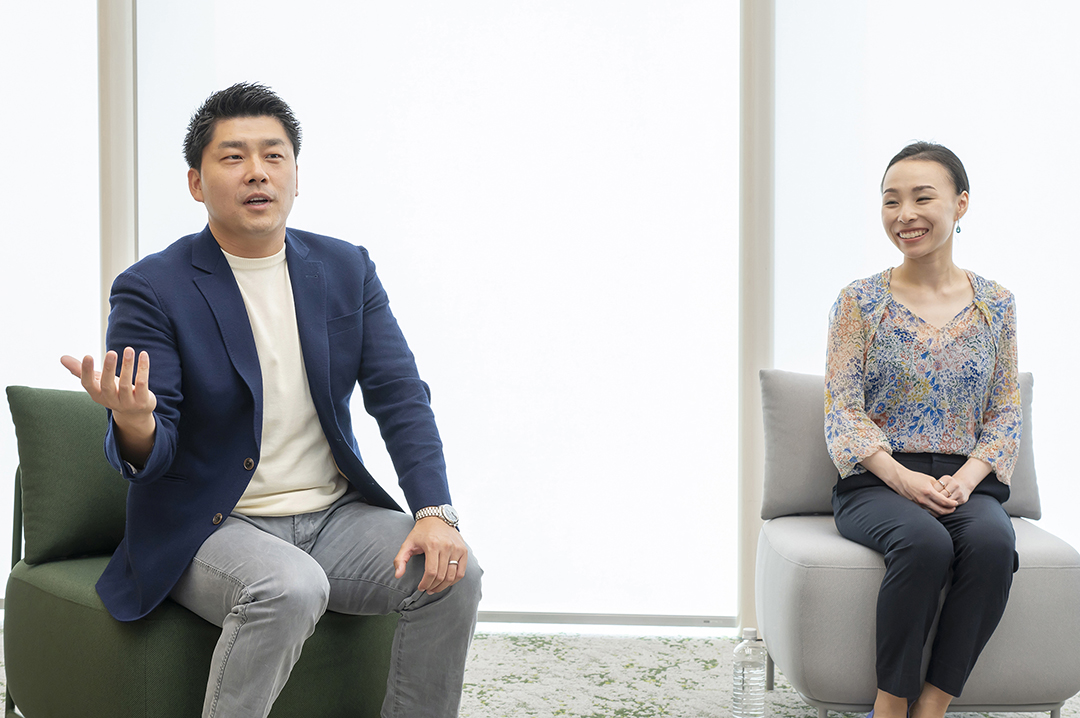
—— I understand that MC is working to dispose of space debris. Tell us about that.
Murakami That's right. I mentioned that I was involved in two new developments, and the second of those is orbital services that support space activities. Artificial satellites and other assets in space are growing in number, and space debris has become a serious problem. If any of that debris were to strike a satellite, it could even disrupt our social infrastructure here on earth. In 2023, MC invested in Astroscale Holdings, a Japanese company that's dedicated to removing orbital debris. In addition to those operations, we're looking into developing a general array of orbital services that can help extend the lifespans of artificial satellites through observational and inspection work, and also prevent more space debris from being created in the future. We believe that orbital services in support of space activities will be essential to ensuring that space businesses remain sustainable.
Growing Japan's Presence
—— Listening to all of you today, I'm getting a strong impression that at times, you're not doing this work for the sake of MC's businesses, but rather to help grow Japan's presence in the world and make it a stronger nation. Is that a fair statement?
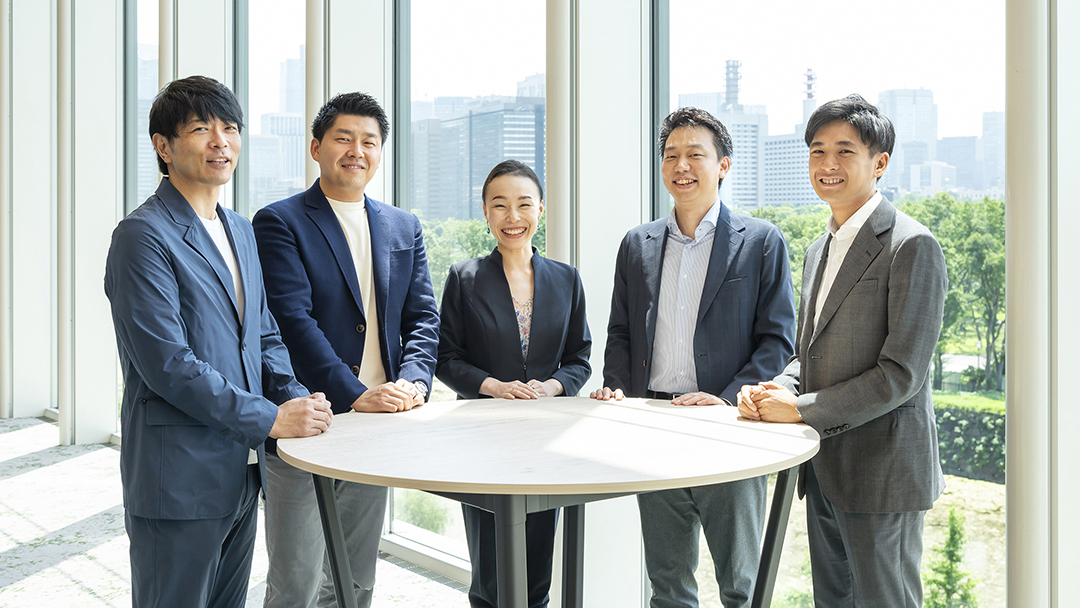
Murakami That's precisely why I wanted to work in the space industry. I'm a mid-career hire at MC, and before I joined the company, I worked for another shosha, where I was in charge of power-plant construction projects, and a telecommunications company, where I was involved in new business developments concerning next-gen satellite communications. All of that work was extremely rewarding, but after a while I started thinking, how can I do more for Japan and help to strengthen its economy? That's when I realized the space industry was the place to be, because it represents a new market with tremendous growth potential. Japan actually boasts an exceptional track record in space. For many years, our nation contributed greatly to the ISS, so I think even today we can say that Japan has a strong presence in that industry. Nowadays however, the international competition in space is starting to really heat up, and if Japan hopes to maintain or even grow its presence, its private enterprises must be very proactive about spearheading space-related business developments, both at home and abroad. I for one am going to continue giving my best efforts in support of Japan's space industry. Ono I have similarly strong feelings about working for the interests of our country. Japan used to be a world leader in drug discovery and production, but in recent years biopharmaceuticals have been at the forefront of medical-supply innovations, and there are fears that Japan's presence in this industry is waning. In today's world, the process of developing new drugs typically starts with universities and other academic institutions conducting the basic research. Startups then commercialize and grow that research, and finally new pharmaceutical companies are launched on the market through M&As or IPOs. In Japan, on the other hand, little has been done to grow the startups that take the academic research through those middle stages, even though the ground-level research that's being carried out by Japanese academia rivals that being performed anywhere else in the world. The funds that have been raised in Japan for drug discovery and development pale in comparison to those in other markets, and that's a problem. But I'm hoping that we can help solve that problem. By integrating the construction of R&D facilities, the enticement of research and financial institutions, and other facets of drug discovery and development, we can help to build an ecosystem that's both dedicated to that pursuit and firmly established throughout the Kamakura-Fujisawa area. The model we're basing this on is the Cambridge Science Park in the UK, which was founded in 1970. When I visited the UK to take a tour of that park, I learned a lot about how a region-wide ecosystem can be built and administered. I'll continue doing my part for MC, so that our company can find ways to strengthen drug discovery and production here in Japan.
- Our next article will feature the second half of our roundtable discussion with pros from MC's Urban Development & Infrastructure Group.
